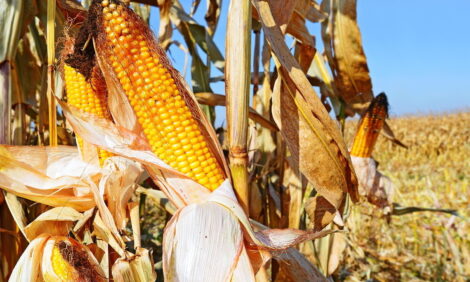



Process Verification Program (PVP)
By Emmit L. Rawls, Professor Agricultural Economics and published by University of Tennessee in Beef Cattle Time, Volume 24, Number 4, Fall 2006.You may have heard about the Process Verification Program (PVP) or PVP cattle sales. In simple terms, PVP is a USDA program for verifying certain product (cattle) attributes. The attributes, in the case of Tennessee and other states in the Southeast Livestock Network (SLN), are the age and source of cattle. The Tennessee Livestock Network (TLN) was recently organized and chartered to facilitate the sale of PVP cattle. A little history might help one to know how this came to be.
Following the first case of BSE in Washington State in December 2003, USDA established the Beef Export Verification program in which Mexico and later other countries agreed to start buying our beef again, if we would verify through dentition (examination of teeth at harvest) that the beef was from cattle under 30 months of age. That program has worked satisfactorily, but Japan wanted stronger requirements. — cattle under 21 months of age. USDA inspectors could not, to Japan’s satisfaction, identify such cattle through dentition but they did convince Japan that they could identify carcasses from cattle called A40. “A” maturity means a carcass showing evidence by the color and hardness of it backbone to be 30 months of age or less. An A40 carcass would be from an animal 15 to 18 months of age. The other criteria under which Japan would accept beef was with documentation from birth records, breeding records, etc. to prove the beef was from cattle under 21 months of age. Last December, Japan began accepting beef that met either of the above criteria: the A 40 rule or acceptance in a PVP, which means there are documented records subject to audit or verification that the beef was from cattle under 21 months old. Estimates are that only 10 percent of the fed cattle harvested could meet the A 40 rule. Consequently, packers and feedlots have shown increased interest in cattle with properly documented age and source information.
As a point of clarification, both Quality System Assessment (QSA) and a PVP can meet the age and source requirement. There are several QSAs which have been developed by feedlots, beef packers or animal health companies in order to try to control or line up a supply of cattle to meet the requirements of the Japanese market. However, once a producer has met the criteria for a particular QSA of say a beef packer, cattle marketed under that QSA must be sold to that packer to meet the Beef Export Verification for Japan. Furthermore, the producer identification moves forward with the cattle through the marketing, feedlot and packer system. In contrast, if producers are certified as PVP (they have met the pre-audit requirements), the only pieces of information required are the birthdates, the identification numbers of the cattle and that they are source-verified. This information can move forward through the system if it is requested by order buyers, feedlots or packers. In addition there are no restrictions as to which feedlot or packer the cattle are sold to.
The SLN, headquartered in Lexington, Kentucky, is a Data Sharing Network. It’s PVP operates under an “umbrella agreement” with AgInfoLink, whose quality policy is to “supply the food industry with accurate, reliable, and secure linked information and traceability to provide enhanced business performance, regulatory compliance and overall food security.” Beef producers provide a verified product — identified with a unique, tamper evident identifier — to the beef supply chain. They provide verifiable data about the product to AgInfoLink’s Private Data Sharing Network. Product suppliers (beef producers) maintain auditable records for three years to support the data. In addition, 10 percent of those enrolled in the PVP must be audited each year to ensure that records on birth dates and farm of origin are available and accurate.
The TLN facilitates the sale of PVP cattle by working with tag dealers, markets and data management in the state. Through September, there have been five sales with cattle that met the PVP criteria. In at least one sale, a buyer was interested only in PVP cattle and bought some of those cattle. In all of these sales, the cattle had been through a full preconditioning program and had some other favorable attributes as well, so it is difficult to credit very strong prices solely to them being PVP cattle. Several individuals from the Tennessee Department of Agriculture (TDA), as well as some veterinarians and Extension agents, have been trained to enroll producers and conduct a pre-audit to ensure that all birth and origin records are in place. Once the producer is enrolled, the TDA will be responsible for conducting the follow-up audits on 10 percent of the enrollees. Individuals interested in the program need to contact the TLN (currently housed at the TDA) at (615) 837-5183 for further information. At the present time, the program seems to be best suited to cow-calf producers who can supply birth date records and those participating in special graded sales.
October 2006


